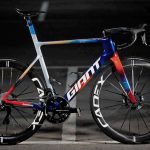Adams Golf reported that net sales for the third quarter increased 13.7% to $10.9 million, compared to $9.6 million for the year-ago period, due primarily to the success of the new Ovation fairway woods that were first delivered tin the first quarter. The company also cited continued strength in sales of Adams Idea Irons, which were first introduced in the fall of 2002.
On a category basis, net sales of Drivers decreased roughly 12.5% to $2.1 million, or 19.3% of total net sales, versus $2.4 million, or 24.6% of total net sales, in Q3 2003. Net sales of Irons increased 26.3% to $4.8 million, or 43.8% of total net sales, from $3.8 million, or 39.4% of total net sales, for the year-ago period. Net sales of Fairway Woods increased approximately 17.6% to $4.0 million, or 36.9% of total net sales, from $3.4 million, or 35.1% of total net sales, for Q3 last year. The gain here was attributed to the success of the aforementioned Ovation product, partially offset by “lower net sales of maturing product lines.”
Four customers comprised approximately 25% of net sales in Q3 while three individually represented greater than 5% of sales. No one customer was more than 10% of net sales.
Net sales outside the U.S. decreased 14.9% to $581,000, or 5.3% of total net sales, from $663,000, or 6.9% of total net sales, for the year-ago period. U.S. net sales increased 15.5% to $10.4 million versus $9.0 million in the 2003 third quarter.
Gross margin improved 160 basis points to 45.2% of sales in Q3 versus 43.6% of sales last year. SG&A also improved, resulting in net income of $61,000, or zero cents per share, versus s loss of $343,000, or a loss of two cents per diluted share, in the year-ago period.
Adams reported that an appellate court in August had affirmed a dismissal of seven class action lawsuits that had been consolidated into one action in 2000. The first claim, filed in June 1999, alleged that Adams 1998 IPO prospectus was materially false and misleading in at least two areas, including the failure to disclose that gray market sales threatened the company’s long-term profits and that the golf equipment industry suffered from an oversupply of inventory at retail. The plaintiffs were appealing a December 2001 ruling by the U.S. District Court for the District of Delaware.















